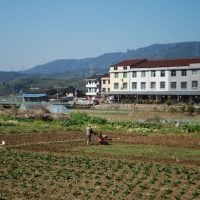Deadline: 1 June 2018
The European Union (EU) is seeking proposals for a program entitled “CSO-RISE – Civil Society Organisations in Research and Innovation for Sustainable Development” to contribute to inclusive growth and reduction of social inequalities as part of interventions to support the priorities set in the Ghana Shared Growth and Development Agenda (GSGDA) II.
The objective of this call for proposals is to foster the initiatives of the civil society organisations in their capacities to address economic, social and climate-resilient issues through innovative interventions contributing to the sustainable management of ecosystems and to the empowerment of women.
Priorities
The proposals presented in this call should cover the two following priorities:
- Development of technologies, economic activities and sector policies coherent with the principles of sustainable agriculture and decent work. ;
- Access and quality of service delivery related to social protection and employment as well as decent work opportunities in the field of sustainable agriculture and green economy
Size of Grants
Any grant requested under this call for proposals must fall between EUR 1 500 000 and EUR 2 200 000.
Eligibility Criteria
- Lead applicant
- In order to be eligible for a grant, the lead applicant must:
- be a legal person and
- be non-profit-making and
- be a specific type of organisation such as Civil Society Organisations, including nongovernmental organisations and
- be established in a Member State of the European Union or in Ghana and
- be directly responsible for the preparation and management of the action with the co applicant(s) and affiliated entity(ies), not acting as an intermediary.
- Potential applicants may not participate in calls for proposals or be awarded grants if they are in any of the situations
- In order to be eligible for a grant, the lead applicant must:
- Co-applicant(s)
- Co-applicants participate in designing and implementing the action, and the costs they incur are eligible in the same way as those incurred by the lead applicant.
- Co-applicants must satisfy the eligibility criteria as applicable to the lead applicant. Other non-state actors (i.e. universities and academic institutions, private sector organisations, trade unions, etc.) can participate to consortium but not assume the leading role.
- If awarded the grant contract, the co-applicant(s) (if any) will become beneficiary(ies) in the action (together with the Coordinator).
- Each member of a partnership consortium must have a precise and clearly identified role in the implementation of the project. There is no upper limit on the number of members in a consortium. A consortium should be composed in such a way as to allow the achievement of the project objectives in the most effective and cost-efficient manner.
- It is strongly recommended that the applicant and its co-applicant(s) draw up an agreement defining their consortium as well as their respective technical and financial roles and obligations. A clear allocation of responsibilities and costs will contribute to the consortium’s success
- Affiliated entity(ies)
- The lead applicant and its co-applicant(s) may act with affiliated entity(ies).
- Only the following entities may be considered as affiliated entities to the lead applicant and/or to co-applicant(s):
- Only entities having a structural link with the applicants (i.e. the lead applicant or a co-applicant), in particular a legal or capital link.
- This structural link encompasses mainly two notions:
- Control, as defined in Directive 2013/34/EU on the annual financial statements, consolidated financial statements and related reports of certain types of undertakings:
- Entities affiliated to applicant may hence be:
- Entities directly or indirectly controlled by an applicant (daughter companies or first-tier subsidiaries). They may also be entities controlled by an entity controlled by an applicant (granddaughter companies or second-tier subsidiaries) and the same applies to further tiers of control;
- Entities directly or indirectly controlling the applicant (parent companies). Likewise, they may be entities controlling an entity controlling the applicant;
- Entities under the same direct or indirect control as the applicant (sister companies).
- Membership, i.e. the applicant is legally defined as a e.g. network, federation, association in which the proposed affiliated entities also participate or the applicant participates in the same entity (e.g. network, federation, association) as the proposed affiliated entities.
- Entities affiliated to applicant may hence be:
- Control, as defined in Directive 2013/34/EU on the annual financial statements, consolidated financial statements and related reports of certain types of undertakings:
How to Apply
- The application procedure consists of two phases:
- Concept notes
- Full applications
- The concept note together with the declaration by the lead applicant must be submitted at the address given on the website.
For more information, please visit Europeaid and download the guidelines.









































